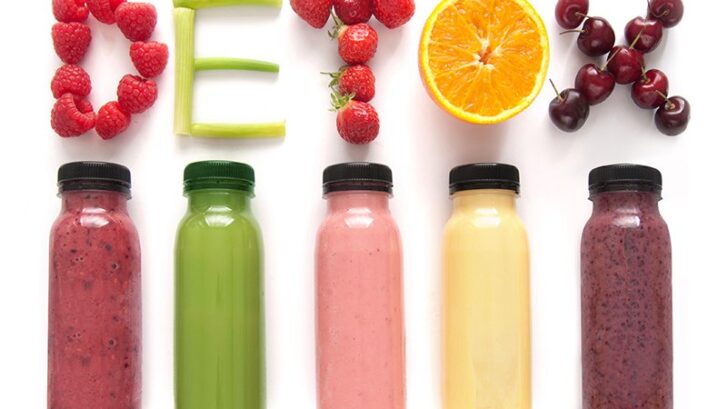Do You Really Need to Detox?
We primary care concierge doctors in Jupiter sometimes hear from our patients that they’ve just completed a detox juice fast and feel great. It’s all about removing the toxins from your body, they tell us, and wonder why we don’t recommend this practice to all of our patients.
Let us explain why we don’t.
The origins
The idea that our bodies don’t detoxify themselves goes back thousands of years, and includes such dubious and often dangerous practices as bloodletting, enemas or “high colonics,” and saunas to remove poisons from the body. Every ancient culture appears to have practiced detoxing in some form, from the Egyptians and Chinese to the Germans and Native Americans.
In the early 20th Century, the notion that constipation could lead to poisoning from inside the body reached a frightening peak, according to Nitin Ahuja, an assistant professor of clinical medicine in the Division of Gastroenterology and Hepatology at the University of Pennsylvania.
Back then, he told The Washington Post, “people were doing aggressive bowel regimens or having surgery to remove the colon because they were convinced that retained stool was causing septicemia,” or blood poisoning.
Fortunately, this practice declined by the 1930s, but the idea that we need special practices to rid the body of toxins has become popular again in recent years.
Scientific basis
In medicine, there are good reasons to detoxify a person. According to Harvard Health Publishing, when the body has been exposed to dangerous, often life-threatening levels of alcohol, drugs, or heavy metals, it is necessary to detoxify the person in a hospital or clinic setting.
The treatment involves specific medical measures, including chelation therapy and the use of certain drugs, depending on the type and severity of the toxicity.
But this type of detoxification, based in science, with proven life-saving results, has become the basis for unproven claims in recent years. Hollywood celebrities, social media influencers, and “natural” health proponents have resurrected the ancient beliefs that the body can’t rid itself of the toxins we encounter daily.
Claims for various detox regimens include rapid weight loss, relief from various pains, and promoting overall health. The problem is, there’s little clinical research to support these claims, and some of the practices are potentially dangerous.
Probably not
Some of these approaches cost little, while others can run into the hundreds of dollars for special formulas, preparations, and devices.
But is there any merit to them? Most experts say no.
The National Center for Complementary and Integrative Health (NCCIH), a branch of the National Institutes for Health (NIH), says that while a small number of studies on detox programs have shown positive results on weight and fat loss, insulin resistance, and blood pressure, the studies themselves have been of low quality.
A 2015 review concluded that there was no compelling research to support the use of detox diets, they say, while another 2017 review found that juicing and detox diets can cause initial weight loss because of the low intake of calories, but that subjects regain the weight once they resume eating.
Harvard Health attributes the weight loss to fluid loss due to extremely low carbohydrate intake and frequent bowel movements or diarrhea.
Possible dangers
While most doctors say brief periods—one to seven days—following a juice fast or detox diet may not be harmful for healthy people, such a regimen can be dangerous, even deadly, for some.
Repeatedly following a detox regimen such as the popular Master Cleanse diet, for example, can cause dehydration, deplete necessary electrolytes and native intestinal flora, and impair normal bowel function. Furthermore, “A person who goes on this diet repeatedly may run the risk of developing metabolic acidosis, a disruption of the body’s acid-base balance, which results in excessive acidity in the blood,” Harvard Health reports. “Severe metabolic acidosis can lead to coma and death.”
Intestinal cleansing kits can also cause dehydration, electrolyte imbalance, impact normal bowel function, and disrupt the necessary intestinal flora. In addition, fecal matter doesn’t adhere to intestinal walls, as depicted in many ads, but rather compacts into firm masses in the open interior of the colon. So the rationale for their use is not based on facts.
And NCCIH cautions that those with diabetes, a history of gastrointestinal disease, colon surgery, severe hemorrhoids, kidney disease, or heart disease, along with children, the elderly, and those with weakened immune systems, may be more likely to encounter harmful results from detoxing and intestinal cleansing. Also, fasting can cause headaches, fainting, weakness, and dehydration.
Bottom line?
Not all juice cleanses and detox procedures will produce such drastic results, but they really aren’t necessary. The human body has its own built-in detox system, including the liver, kidneys, intestines, lungs, immune system, and even the skin, that has protected us since humans evolved.
Yes, our air, water, and foods—especially processed foods—are loaded with various toxins that we are exposed to every day. But these often-costly products and procedures aren’t the way to deal with them.
“I tell my students that a true detox comes with learning to cook a diet that’s rich in whole grains, fruits, vegetables, beans and lentils, seafood and oils, accompanied by daily exercise and a good night’s sleep,” Thomas Sherman, a professor in the Department of Pharmacology and Physiology at Georgetown University School of Medicine in Washington, told The Post.
And that’s our best recommendation, as well.

